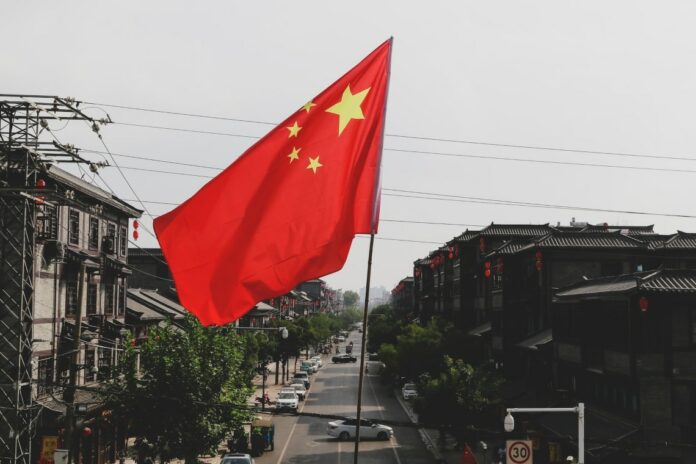The issue of crypto regulation in China could play an important role during a hypothetical next bull run.
In fact, since just the last big bull run, the one in 2021, the Asian country’s attitude toward Bitcoin and cryptocurrencies has been one of outright closure, going so far as to prohibit citizens from buying and selling them.
Summary
Bitcoin illegal in China: current crypto regulation
Even today for all intents and purposes the Chinese ban against buying and selling Bitcoin is in effect, but things are changing.
First, the ban has been effectively lifted from Hong Kong.
Hong Kong is the second most important financial center in the country, and certainly the most international. It is also a so-called autonomous territory, meaning it has its own laws that may even differ from those of the motherland.
Let’s be clear: Hong Kong is China for all intents and purposes, only it can rely on some legislative autonomy that allows local regulators to experiment.
For now, the experiment of allowing crypto trading to Hong Kong residents has not yet yielded particularly positive results, but it is for all intents and purposes a first small opening.
So Bitcoin and cryptocurrencies remain illegal in China, with the exception of tiny Hong Kong where it became legal to trade them again this year.
Bitcoin’s legal value contrasted with crypto regulation in China
Despite this, even mainland China recognizes Bitcoin’s legal value.
A few days ago, Shanghai Intermediate People’s Court No. 2 Judicial Committee member Ren Suxian, a senior third-tier judge and expert in trial practice, published a lengthy post on WeChat in which he bluntly stated that Chinese law recognizes Bitcoin as a valuable asset.
The post was expressly titled “Legal Attributes and Judicial Disposition of Digital Currency,” and explicitly mentions Bitcoin.
The issue addressed by Suxian is precisely that of giving Bitcoin real value before the law, particularly in cases of theft or other property-related crimes.
The Shanghai-based expert reports that different bailiffs handle these cases differently, depending on how the price of the digital currency is calculated.
Indeed, in the absence of local exchanges, it is somewhat more difficult to detect the market value of digital assets, but what is certain is that Chinese law recognizes a value to these assets.
While admitting that in CIna Bitcoin is not considered a currency, it does admit that it is property.
In this regard, he calls for new mechanisms to be established for the valuation and pricing of digital currencies, precisely so that judicial apparatuses can estimate their value. Therefore, it calls for the selection of third-party institutions to carry out these surveys and estimates.
The misunderstanding of Marxist theory
At one point in his argument Suxian explicitly cites Marxist theory of value, saying that the value of the commodity is calculated by them based on the labor time socially required to produce it.
China is after all still formally a communist country, and therefore cannot deny the validity of the Marxist theory of value.
However, this theory not only does not account at all for the dynamics by which prices in financial markets are determined, but has also been disproven in the past on a general level by, for example, several Nobel laureates in economics.
So on the one hand it turns out to be impossible to apply this theory to Bitcoin, or to any existing financial asset in the markets including fiat currency (like the Chinese Yuan), but on the other hand China still cannot get rid of it.
And this is probably where the misunderstanding arises that leads Chinese policy to deem Bitcoin a worthless asset, while jurisprudence is forced playfully to admit that it does.
Then again, politics is often about propaganda, and that propaganda is often based on lies, while jurisprudence has to do with facts happening in the real world.
Overcoming communist politics
It should also be mentioned that China has now been open to the free market for more than 30 years, so much so that it has overcome communist orthodoxy in many areas.
Indeed, observing, for example, how Chinese companies behave in Western markets, traces of the old communist ideology are no longer visible.
Suffice it to say that the way they determine market prices for the products they export is essentially the same as that used in the free market by Western companies, and thus totally divorced from the old Marxist theory of value.
It seems, therefore, that what is going on in China is an attempt to defend communist propaganda against the power of the free market, and that this attempt is bound to fail sooner or later.
Just as the classical communist approach has been set aside in various economic and productive spheres, it will probably eventually be abandoned in the financial sphere as well, starting in Hong Kong itself.
This overcoming of traditional communist policies should eventually benefit Bitcoin as well, to which sooner or later Chinese policy will also have to assign a market value, just as the country’s judiciary has already done, thus setting aside the Marxist theory of value once and for all.




